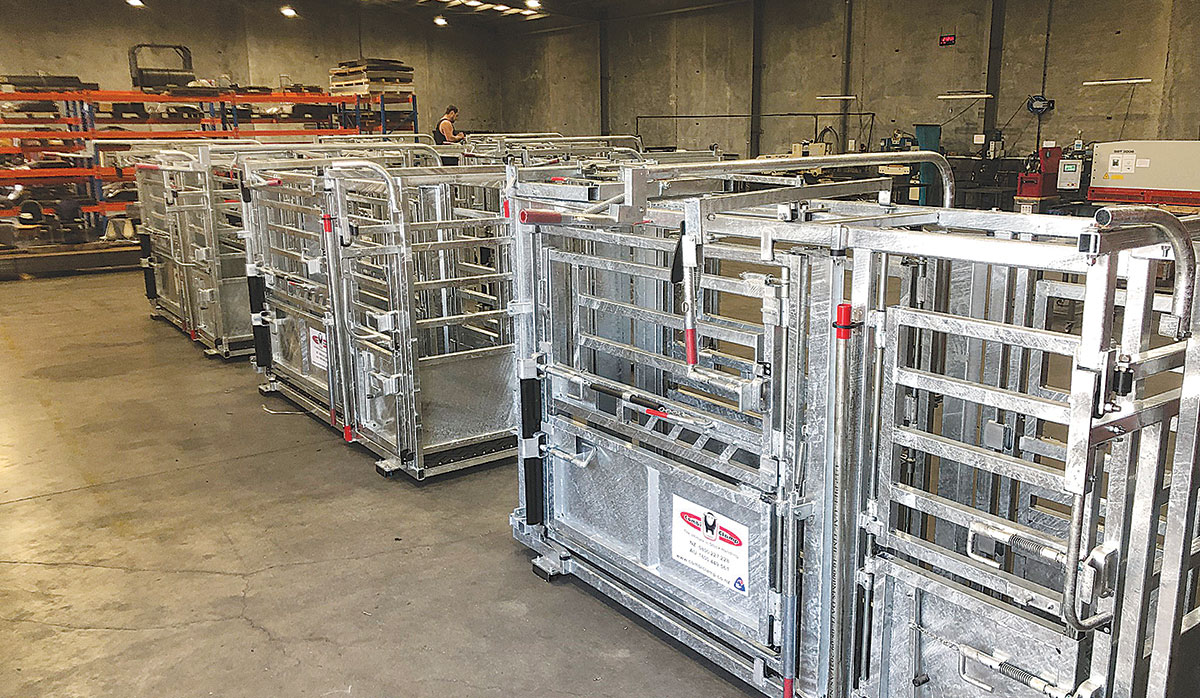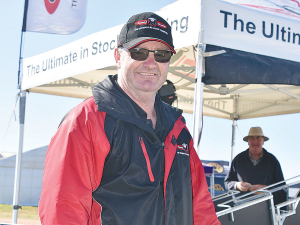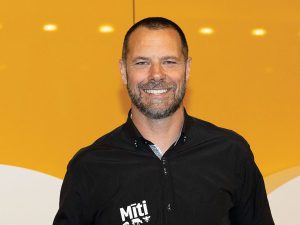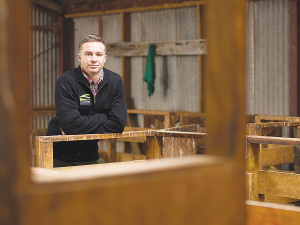Made in New Zealand is a feature that looks at the wealth of design and manufacturing ability we have in New Zealand, producing productive and cost-effective products for the agricultural sector. Machinery and Products editor Mark Daniel takes a closer look at Combi Clamp Limited, catching up with Managing Director Wayne Coffey.
Q- When was the company founded, by whom and why (was it to solve a problem or market a product)?
The company was founded in 2002 by me and my wife Lynley while managing a farm in Taihape. With 11,000 ewes and a sheep handler the sheep didn’t like, we realised we needed something more user and stock friendly.
Q- Where are you located - is it single or multiple sites and how many people are employed?
In 2017, we purchased our workshop in Palmerston North, where we currently employ six full time staff, including two sales representatives who cover New Zealand and Australia. We also have an agreement with Ritchie Agricultural, based in Scotland, who manufacture and sell the Combi Clamp under licence.
Q- What are your key products and which markets do they serve?
Our range includes the Combi Clamp Sheep Handler that offers a range of options including 3-way Drafting, Weighing, Gadget Holders, Races, Wheel Attachments, Wool Classing and Lamb Cushion Walls. Our range of cattle crushes are aimed at general, heavy-duty and vet operations, with options including Auto Head Yoke, Sliding Gate, Anti Backing Ratchets and Offside Gate Openers.
Q- Are your products unique - if so, what are the four key benefits? If not unique, what are the four unique selling points?
The Combi Clamp is unique because it catches sheep with the operators’ body weight being the mode of power. It is quiet because there are no power-driven air or hydraulics, meaning there’s nothing to go wrong, so maintenance is minimal. The HD Cattle Crushes follow the same principles, all featuring our Auto Head Yoke, where cattle catch themselves.
Q- Looking at an ever-evolving market, what changes have you made over the last few years?
The world has become a throwaway society, but living with a wife who thinks everything should last 30 years, we keep building equipment stronger to handle bigger animals.
Q- What has been the company’s greatest success since its formation?
Our greatest success is measured by the positive client feedback that we receive. We have sold thousands of handling systems in the UK, EU, Ireland, Canada, North America, Australia, and NZ.
 |
|---|
|
Moving to in-house manufacturing was the best thing for Combi Clamp.
|
Q- In contrast, what has been the biggest “Oh Bugger” moment or the steepest learning curve?
Our biggest learning curve was that we should have moved to inhouse manufacturing earlier than we actually did. Manufacture by a third party meant margins were too tight to grow the business. Keeping things in-house means we can make changes more easily and work on R&D with new product development.
Q- If you were approached by someone looking to start a business, what would be your three key pieces of advice?
Do your research and develop your product before hitting the market to be in front with momentum. Believe in and back yourself because if you aren’t confident you may end up a statistic and finally, it’s all about the people not the product.



















